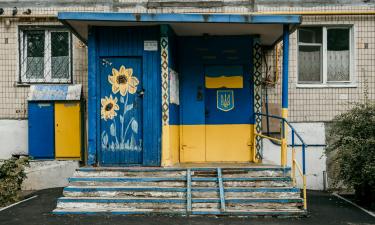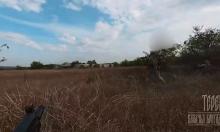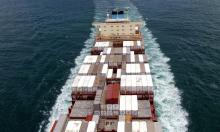Russia Plans To Step Up Cooperation With Angola In Power Engineering, Fishing And Diamond Mining
Russia plans to step up its cooperation with Angola in power engineering, fishing and diamond mining. The two countries have agreements on cooperation in trade, economy and the development of diamond mines, Russian Foreign Ministry official Alexander Yakovenko said in a RIA Novosti interview, given on the eve of Russian Foreign Minister Igor Ivanov's visit to Angola, beginning on Thursday. At present, the two countries are actively working to start the mechanism of the Russian-Angolan intergovernmental commission for cooperation in economy, science, technology and trade, Yakovenko said. The commission is co-chaired by Russian Deputy Prime Minister Ilya Klebanov, who visited Angola in December 2000, and Angolan Minister of Planning Ana Dias Lourenco. Russian and Angolan experts met in Moscow on February 7-9, 2001, to prepare the commission's first meeting. Russian, Angolan and Brazilian companies continue work on their joint project to build the Capanda 520-megawatt hydroelectric power plant on the Cuanza River. The hydro will be the largest in the region. The partners have already carried out 80 percent of design and construction work and supplied 50 percent of industrial equipment. Five Russian vessels catch fish in Angola's economic zone. Russia and Angola have established several joint ventures. In April 2001, Russia's State Fishing Committee submitted its proposals to Angola, concerning a draft bilateral agreement for cooperation in fishing. Russia participates in another successful joint venture in Angola, the Catoca diamond-mining company, which involves also Angolan, Brazilian and Israeli capital. In May 2001, the company's chief executives visited Luanda, where they signed an agreement to establish a joint venture to build a hydroelectric power plant on the Chicapa River. There are also some other projects under consideration. In addition, Russia and Angola maintain bilateral cooperation within the framework of a working group on diamonds. Yakovenko said that Russia renders effective assistance to Angola in training specialists. From 1996 to 2000, Angolans were given 20 state scholarships a year for studies at Russian higher education institutions. This year, the number of state scholarships has been increased to 35. Fourteen Russian teachers now work at Angolan higher and specialist education institutions. Over 70 Russian medical specialists work in Angola, mostly under private contracts. Moscow also provides humanitarian aid to Angola. On November 23, 2001, in an official ceremony in Luanda Russia turned over to Angola six million roubles worth of tents, blankets, pharmaceuticals and foodstuffs, delivered by an aircraft of the Russian Ministry for Emergency Situations. The full text of Alexander Yakovenko's interview will be placed on the RIA Novosti web site at: www.rian.ru.
Subscribe to Pravda.Ru Telegram channel, Facebook, RSS!




